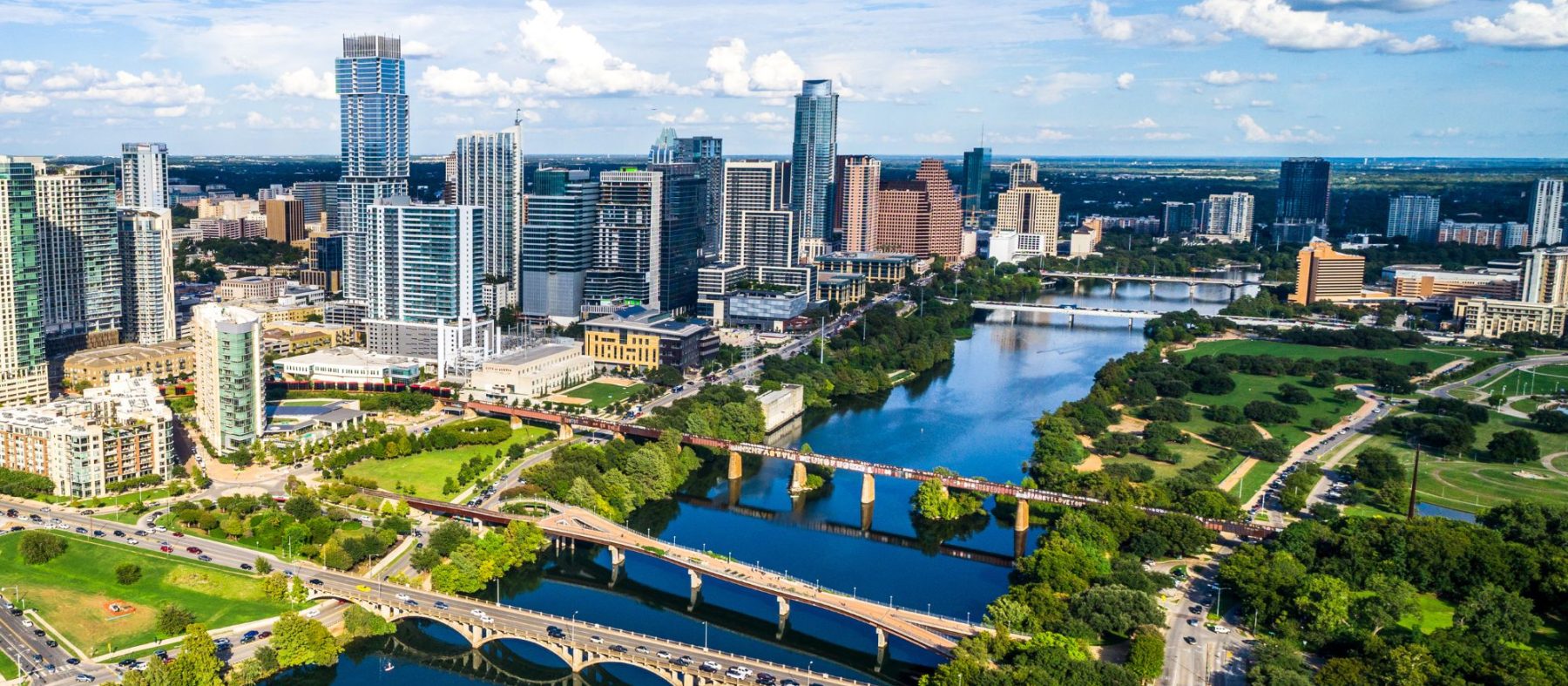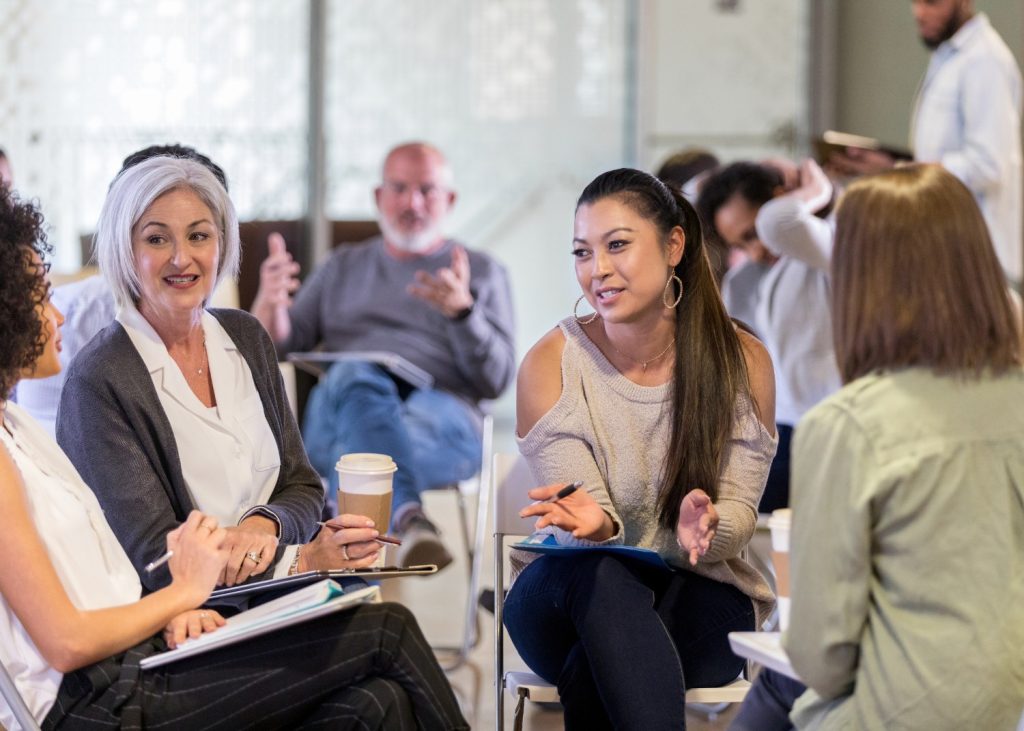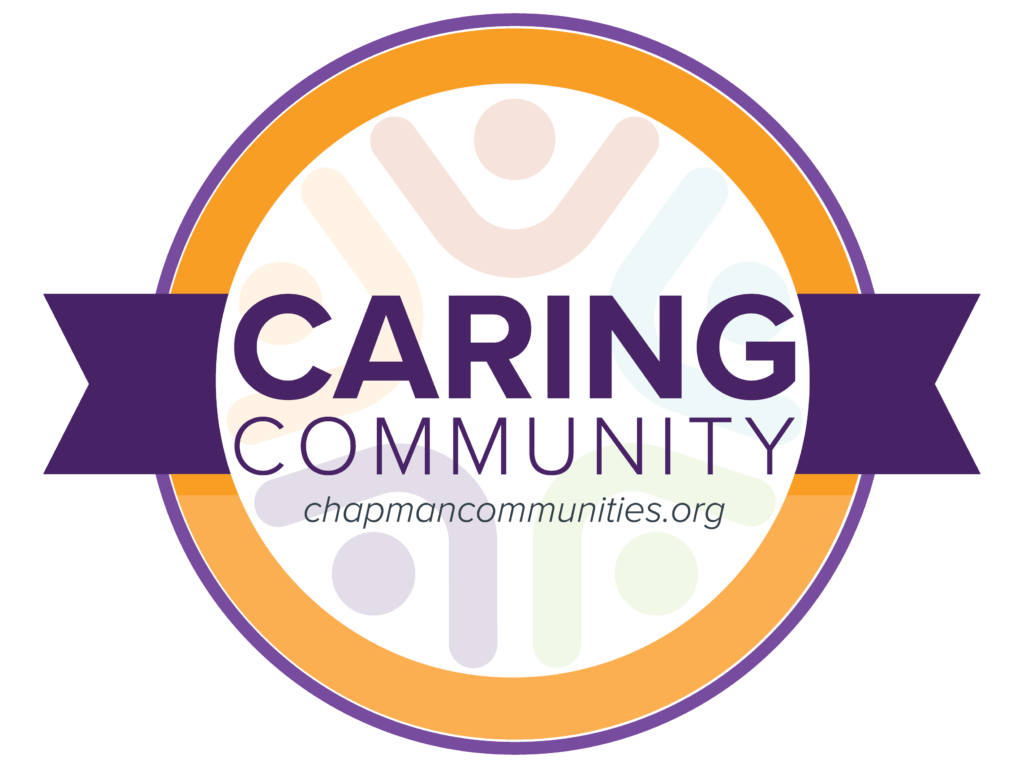

Stronger Communities Start With Caring Leadership
Communities thrive when people feel seen, valued, and connected. Yet, many communities today face fragmentation: organizations working in silos, leaders under pressure, and residents navigating disengagement and disconnection.
At the Chapman Foundation for Caring Communities, we believe leadership is not limited to the workplace; it is a community responsibility. Our Caring Communities model brings together leaders across sectors, including public, private, nonprofit, faith-based, and civic, to create a shared language of care and a unified approach to leadership.
Through cohort-based learning, intentional convenings, and collective impact partnerships, we embed human-centered leadership practices that:
- Build trust across organizations and sectors
- Strengthen intentional connections among leaders and residents
- Create a culture of learning and belonging within the community
- Align people and organizations around meaningful work and shared purpose
From anchor organizations to cross-sector collaboratives, Caring Communities cultivate ecosystems where caring leadership is the norm. The result is stronger families, healthier workplaces, and communities where every person has the opportunity to thrive.
Together, we are proving that when communities care deeply, they also succeed greatly.
Changing The World, One Relationship At A Time
Caring Communities is a growing movement fueled by real people, meaningful relationships, and shared purpose. Together with our partners and alumni, we’ve seen how caring leadership can spark transformation in families, workplaces, and across entire communities. This work is alive in the connections we build and the leaders we empower.
We move forward with confidence, knowing we have the people, the passion, and the potential to shape a future aligned with our vision: a world where leaders have the skills and courage to care.
Want to explore what this could look like in your community?
- Start a Conversation → Connect with us to explore how Caring Communities can take root where you live.
- Download the Caring Communities Overview → Get a clear picture of how we build communities of caring leadership. Download here.
- See Impact in Action → Watch stories from communities across the nation that are transforming through caring leadership.
- Bring Leaders Together → Host a community gathering to align leaders across sectors.
- Join the Movement → Be part of a growing national network of Caring Communities!
